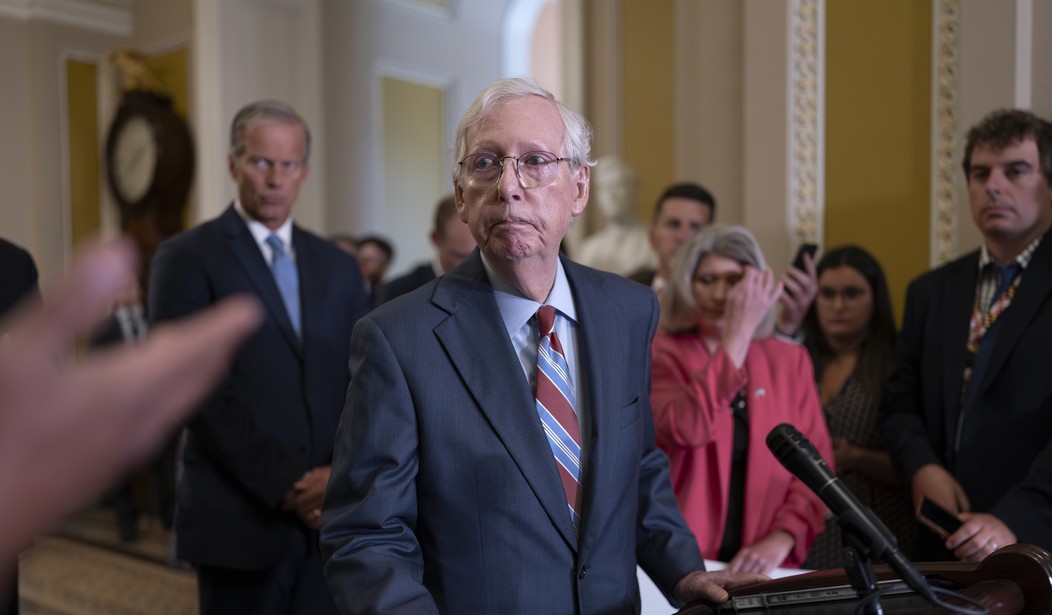It seems obvious with one octogenarian as president and another as Senate Minority Leader. With 23% of members of Congress over the age of 70 — many of them with access to the most closely held secrets of U.S. intelligence — we have a potential dementia problem in the United States government.
Dementia is a term that describes the loss or lessening of cognitive functions in older people. And with people living longer and, equally important, working longer, the problem of dementia in the national security community becomes a threat.
The Rand Corporation researched the issue and published a paper titled “Could Dementia in the National Security Workforce Create a Security Threat?” Because people are living longer and working later in life, the two trends together pose unique challenges to policymakers.
“As a result, the workforce might experience a higher prevalence of dementia than in past generations,” the study concluded. “Taken together, we believe that an increasing number of cleared personnel — that is, personnel who hold or have held security clearances — have or will have dementia.”
It’s not just Joe Biden we have to worry about, of course. Twice in the last few months, Senate Minority Leader Mitch McConnell (R-Ky.) froze in public, leading to open speculation about his mental acuity.
McConnell isn’t just an ordinary senator. He’s a member of the so-called “Gang of Eight” — the majority and minority leaders of the House and Senate, along with the ranking members of the House and Senate intel committees. They are regularly briefed on the most highly classified intelligence issues, including threats to the nation, operations, and analysis.
“Individuals who hold or held a security clearance and handled classified material could become a security threat if they develop dementia and unwittingly share government secrets,” the study says.
“Our limited research suggests this concern is an emerging security blind spot,” it continues. “Considering the potential consequences of an inadvertent security breach stemming from cognitive impairment, we believe that further study of risk, recognition, and mitigation strategies is important.”
Most holders of security clearances, a ballooning class of officials and other bureaucrats with access to secret government information, are subject to rigorous and invasive vetting procedures. Applying for a clearance can mean hourslong polygraph tests; character interviews with old teachers, friends, and neighbors; and ongoing automated monitoring of their bank accounts and other personal information. As one senior Pentagon official who oversees such a program told me of people who enter the intelligence bureaucracy, “You basically give up your Fourth Amendment rights.”
Yet, as the authors of the RAND report note, there does not appear to be any vetting for age-related cognitive decline. In fact, the director of national intelligence’s directive on continuous evaluation contains no mention of age or cognitive decline.
In 2017, Vox reported on a pharmacist who prescribed Alzheimer’s medication to some members of Congress. The story appeared on the medical website Stat.
Mike Kim, the reserved pharmacist-turned-owner of the pharmacy, said he has gotten used to knowing the most sensitive details about some of the most famous people in Washington.
“At first it’s cool, and then you realize, I’m filling some drugs that are for some pretty serious health problems as well. And these are the people that are running the country,” Kim said, listing treatments for conditions like diabetes and Alzheimer’s.
“It makes you kind of sit back and say, ‘Wow, they’re making the highest laws of the land and they might not even remember what happened yesterday.’”
Our Congress is getting older because the age group most likely to vote is 65 and older. Nearly two-thirds of voters over 65 cast their votes in 2022. And the older Congress gets, the more feeble — and feeble-minded — it gets. This is an issue that has yet to topple Joe Biden or Mitch McConnell. But eventually, the age question for politicians and national security leaders is going to be examined as a serious threat.
Maybe Nikki Haley is onto something. Maybe if we’re going to mandate term limits for congressmen, why not an age limit? As the population ages, we need to find a way to balance the notion that age and experience are always better than youth and vigor.










